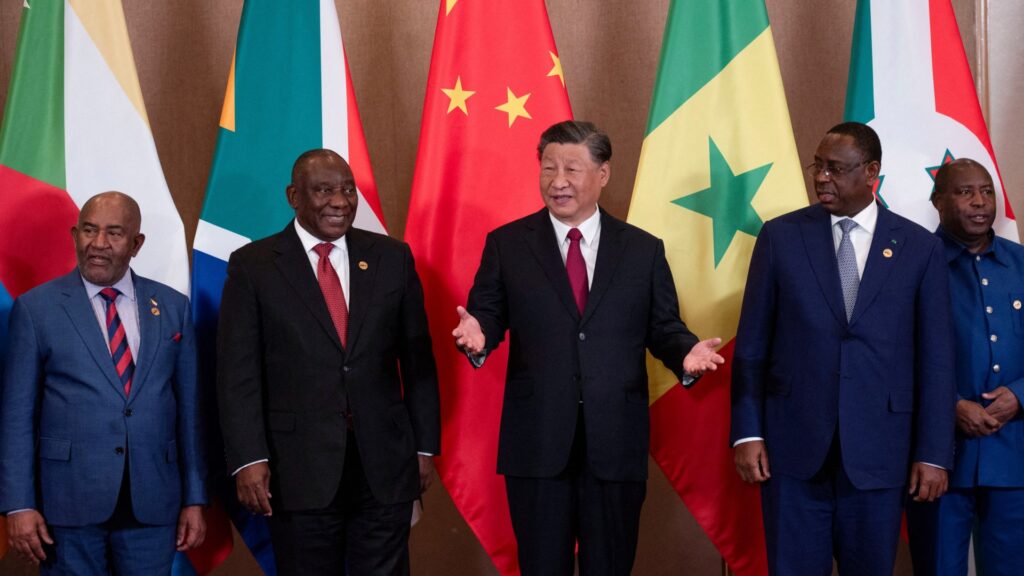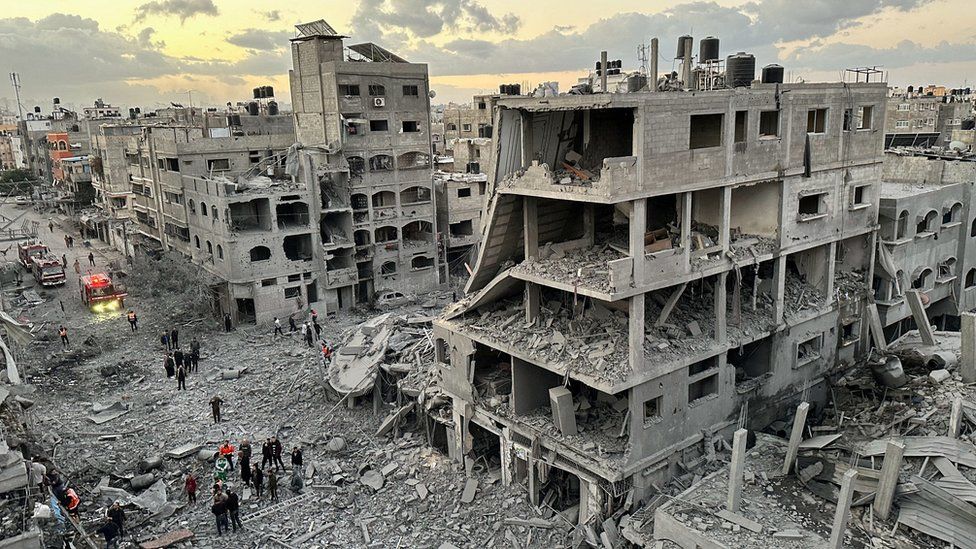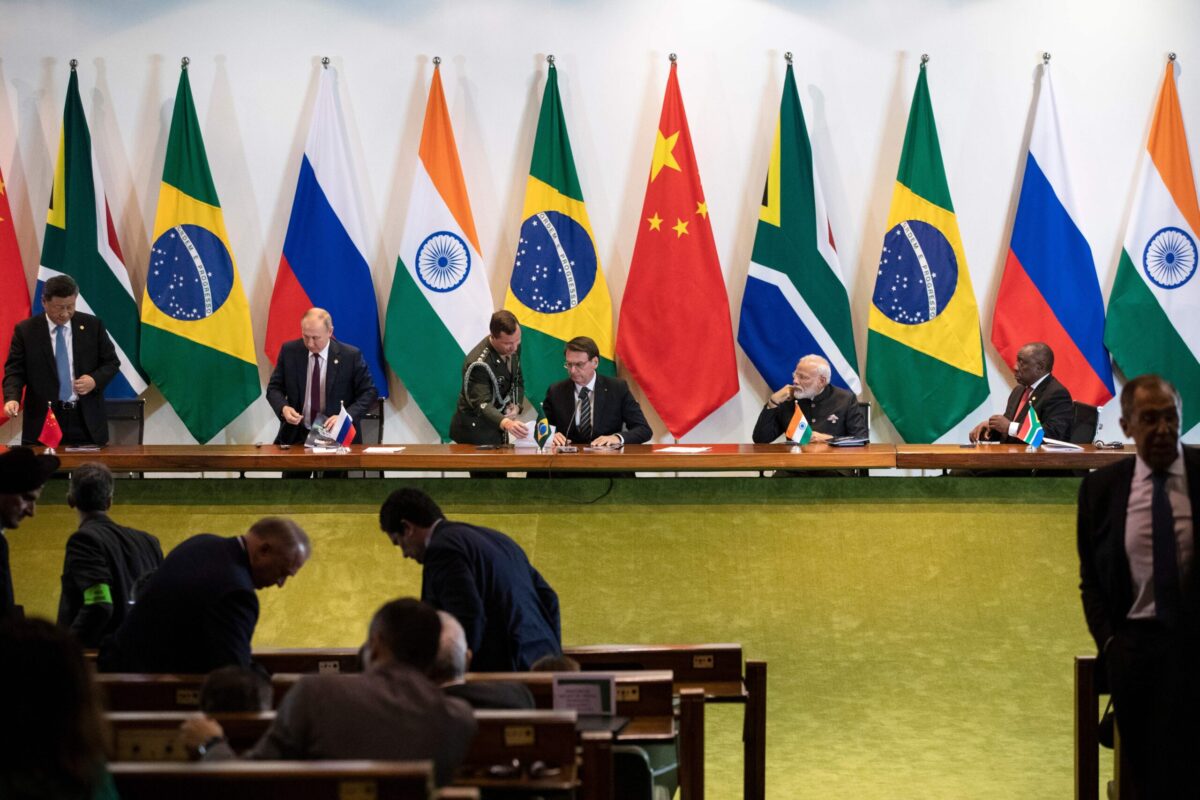BRICS Expresses Disapproval of Israel’s Actions in Gaza, Signaling a Stance Contrary to that of the Western Nations

South Africa, the current head of the BRICS group, hosted the “Extraordinary Joint Meeting on the Middle East situation” on Tuesday, November 21. This meeting aimed to highlight the contrasting perspectives among India and the other BRICS-plus members regarding the current situation in Israel and Palestine. The alliance based on economic interest has expressed its dislike for the actions of Israel against civilians in Gaza. This is the first time that the group has opted to issue statements on political matters. The grouping has called for an end to war crimes and easing of hostilities from both parties, aiming to alleviate the escalating humanitarian crisis in the Gaza Strip.
The Israeli-Palestinian conflict has seen the active involvement of the United States for over fifty years. Its engagement began post-World War II when it joined the UK in a 1946 inquiry suggesting the resettlement of one hundred thousand Holocaust survivors in Palestine, envisioned as a state neither exclusively Jewish nor Arab. In 1948, the U.S. became the first nation to recognize Israel’s sovereignty. Following the 1967 Six-Day War, the U.S., along with other nations, attempted to mediate the broader Arab Israeli conflict. The pivotal moment came in the 1973 war, prompting the U.S. to take the lead in diplomacy. Secretary of State Henry Kissinger played a crucial role in shuttle diplomacy in 1974-75, easing tensions and facilitating disengagement.

The group was unable to produce a joint statement, but each representative including Russia, China, India, Brazil, and South Africa have reflected their opinion on the matter through their speeches at the online summit.
Initially, China’s stance was unequivocal as until the day next of the October 7th attacks, China referred to both parties in an equal manner for collaboration. It was until a week after the continuous attacks that the attitude of the Chinese diplomats shifted, the Chinese diplomat’s see Israel’s action as Collective punishment being imposed on Gaza. China believes that Israel’s right to self-defense must be guided by International law and should be at the cost of innocent civilians. The Chinese president, Xi Jinping said, “It is necessary to ensure the safe and unimpeded passage of humanitarian assistance and stop the collective punishment against the people of Gaza through forced eviction, as well as turning off water, electricity and oil,” Xi said on Tuesday via video link at the summit hosted by South African President Cyril Ramaphosa. Xi repeatedly vouched for a two-nation stance, which will ensure peace among the two.
In the case of Russia, Vladimir Putin stated that it is due to failed policies of the United states that the people of Gaza are suffering. It cautioned Israel to show restraint and to agree upon a political settlement between the two conflicting parties. Putin expressed sympathy for Palestine stating, “Due to the sabotage of U.N. decisions, which clearly provide for the creation and peaceful coexistence of two independent and sovereign states – Israel and Palestine – more than one generation of Palestinians have been brought up in an atmosphere of injustice towards their people, and the Israelis cannot fully guarantee the security of their state,”. He called the large-scale deaths of Palestinian children “terrible” on Tuesday and added that seeing operations done on youngsters without anesthesia “evokes special feelings”.
 Putin and Xi hit more focused notes, asking for a cease-fire and the release of civilian hostages. Both the countries unleashed the same level of criticism on Israel’s atrocities in Gaza.
Putin and Xi hit more focused notes, asking for a cease-fire and the release of civilian hostages. Both the countries unleashed the same level of criticism on Israel’s atrocities in Gaza.
The South Africa President, Cyril Ramaphosa had the most sensitizing approach in all the countries that formulate BRICS. “The atrocities that we have witnessed are the latest chapter in a painful history of suffering, oppression, occupation, and conflict going back more than 75 years. The root cause of this conflict is the illegal occupation of Palestinian territory by Israel as reflected in UN Security Council Resolution 2334, which states that “Israeli settlements constitutes a flagrant violation under international law.” We therefore urge the international community to agree on urgent and concrete actions to end the suffering in Gaza and establish a path towards a just and peaceful resolution of this conflict,” he said. The President of South Africa accused Israel of War crimes and acts “tantamount to genocide”. Ramaphosa also condemned Hamas for its attacks and claimed that both the sides involved are violating International Law. Ramaphosa started his speech by saying that “The collective punishment of Palestinian civilians through the unlawful use of force by Israel is a war crime,” and that “The deliberate denial of medicine, fuel, food and water to the residents of Gaza is tantamount to genocide”. “We affirmed … that a just and lasting solution to the Palestinian-Israeli conflict can be achieved by peaceful means.”
Moreover, President Modi of India was not able to attend the summit due to election campaigns in Rajasthan. Instead of Prime Minister Modi, the External Affairs Minister S. Jaishankar joined them. India has condemned the killing of the civilians in Palestine but has been unable to outwardly call for a ceasefire. The Indian government has requested Israel to practice restraint. The Indian government is seen to side with the Western block on the matter of the conflict as they abstained from voting in the United nation General Assembly. Moreover, Mr. Modi skipped the meeting with President of China and Russia on the issue of Israel and Palestine but did host the G20 summit online the next day.
According to commentators, South Africa, the smallest of the BRICS nations and a nation that endured harsh apartheid for over 40 years, sees parallels in the Palestinian cause and has continuously been among the most vocal proponents of a ceasefire. Argentina’s Foreign Minister Santiago Cafiero stated that his nation accepted Israel’s right “to legitimate self-defense while strictly respecting humanitarian international law”. Ebrahim Raisi, the President of Iran, has suggested that Palestinians should hold a referendum to determine their future. This is a significant departure from the previous Iranian government’s position, which was to support a one-state solution in which Palestinians and Israelis would live together in a single state.